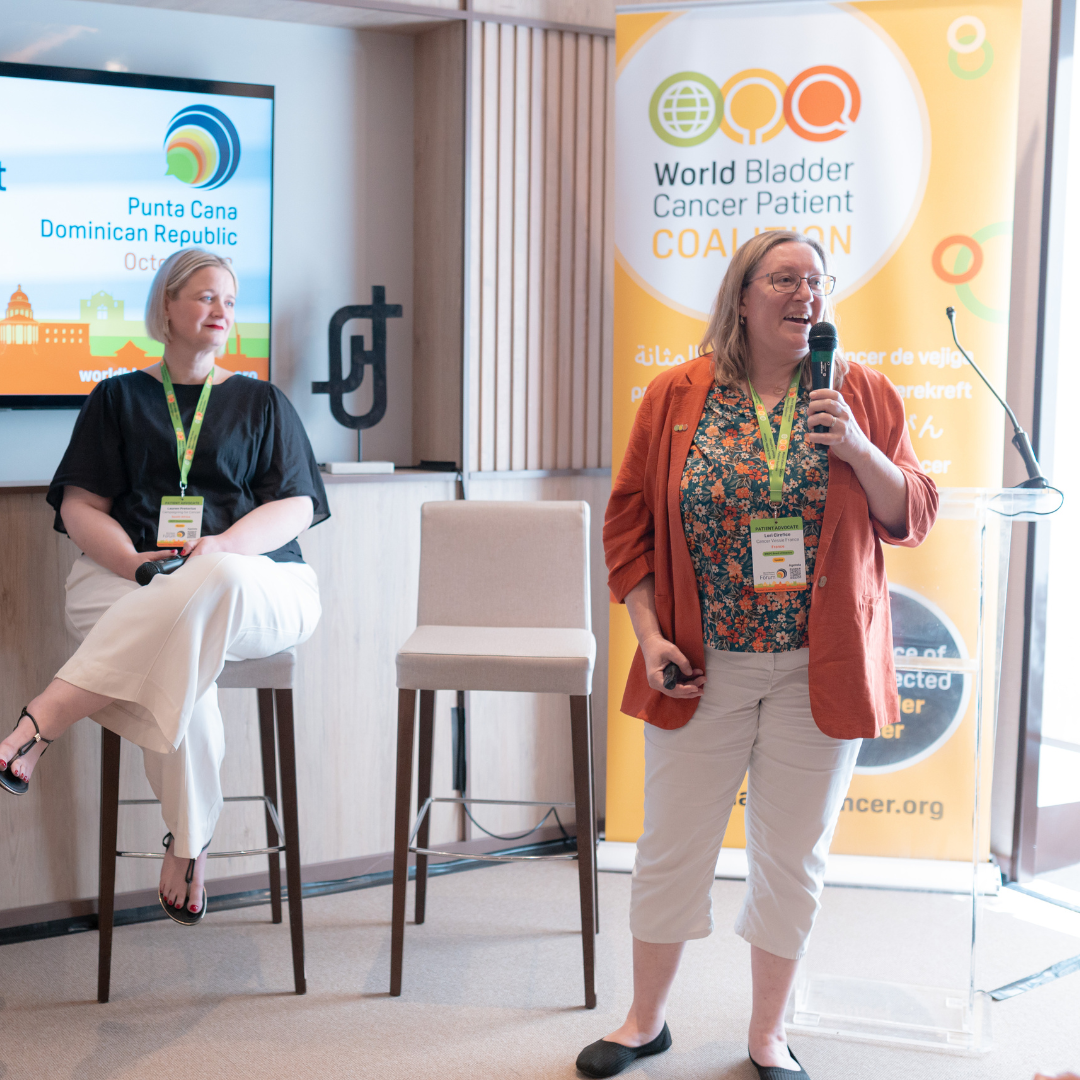Strengthening the patient voice in HTA
The session titled “The role of the patient voice in Health Technology Assessment – HTA 101” at the World Bladder Cancer Patient Forum 2024 brought patient experts from our community to explore how this critical process shapes healthcare decision-making. The discussion highlighted the importance of HTA in ensuring that treatments, medical devices, and even public health campaigns deliver value not just in terms of cost but also in their impact on the lives of people affected.
Lauren Pretorius, CEO of Campaigning for Cancer, opened the session by demystifying HTA for the audience. She explained how HTA is a systematic process that evaluates the safety, effectiveness, and broader implications of health interventions. “It’s about weighing the benefits and trade-offs—what’s the cost to the healthcare system, but also, what’s the value to the patient?” Lauren explained. She emphasised that HTA is not limited to medicines but encompasses everything from surgical procedures to public health initiatives and campaigns.
The discussion underscored the importance of including patient perspectives in HTA. Michelle Colero shared how Bladder Cancer Canada has successfully contributed patient feedback to HTA processes in Canada. For example, she described how patient-reported experiences with new formulations of Bacillus Calmette-Guérin (BCG) therapy highlighted severe side effects that might otherwise have been overlooked. “When patients share their stories, it goes beyond statistics—it humanises the process and ensures decisions are made with real-world outcomes in mind,” Michelle said.
Lori Cirefice, President of Cancer Vessie France, provided insights into the European context. In France, HTA involves patient organisations through structured surveys and written contributions, ensuring that the patient voice is considered in regulatory decisions. However, Lori also noted challenges, particularly in regions without formalised HTA frameworks, where patient organisations often struggle to have their voices heard.
The session also addressed the broader implications of HTA. For policymakers, HTA offers evidence to inform reimbursement decisions, while for healthcare providers, it ensures that treatments deliver meaningful outcomes. The conversation stressed that the process is not without its complexities, particularly in balancing cost-effectiveness with ethical considerations and patient preferences.
As the session drew to a close, the speakers reflected on the evolving role of HTA in healthcare systems worldwide. With changes to European HTA legislation set to take effect in 2025, the panellists called on patient organisations to prepare for these shifts by deepening their understanding of HTA and advocating for greater patient involvement.
«Health Technology Assessment is about so much more than numbers. It’s about ensuring healthcare decisions reflect the realities and needs of patients.
Lauren Pretorius, CEO, Campaigning for Cancer
The session reinforced the message that patient involvement is essential as a regulatory requirement and a cornerstone of effective, compassionate healthcare.
Watch the full recording of the session, The role of the patient voice in Health Technology Assessment – HTA 101, on the WBCPC YouTube Channel.




